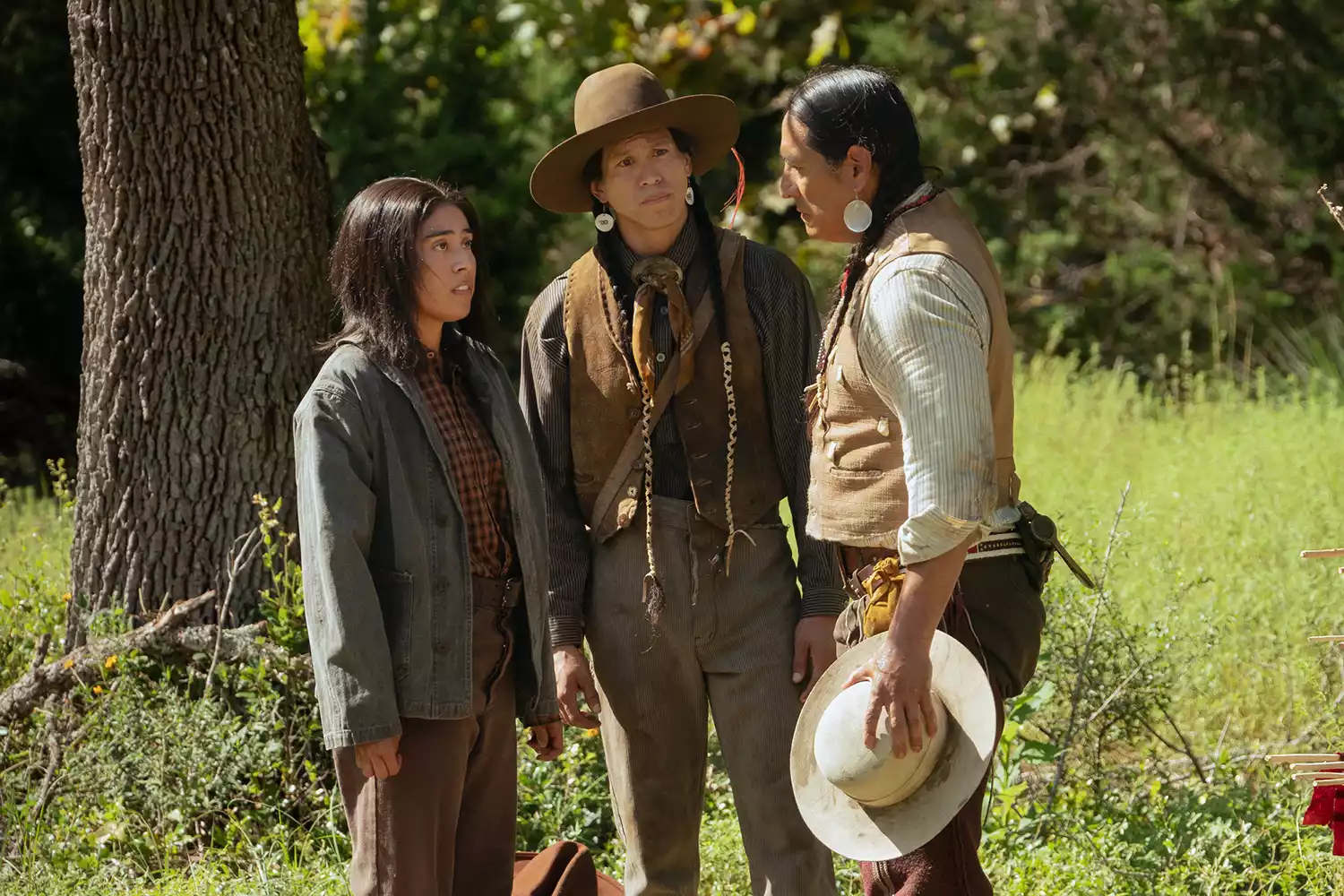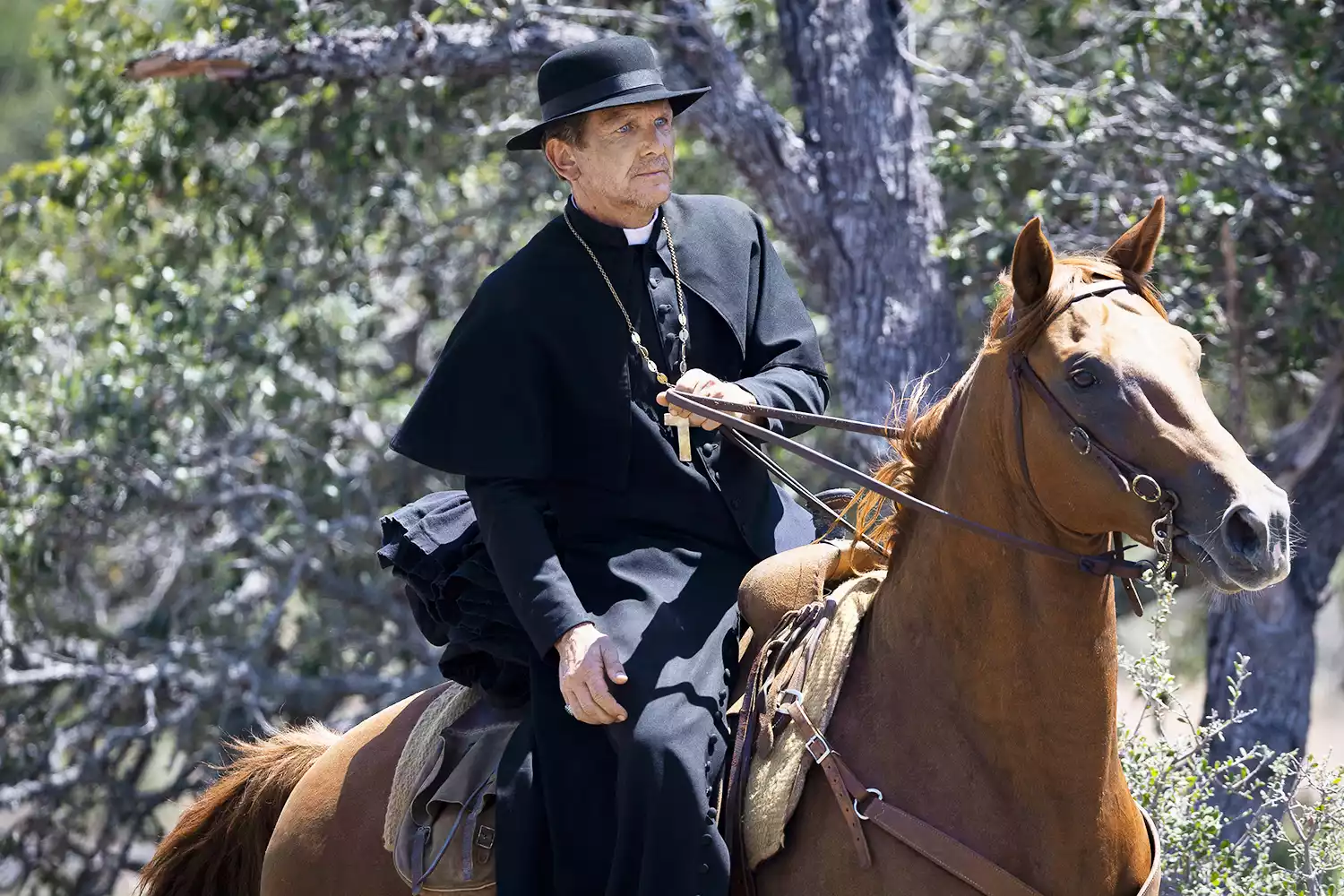No one is safe in the Wild West — and especially not when creator Taylor Sheridan is in control.
The sixth episode of 1923 season 2, which aired on Sunday, March 30, saw the culmination of five characters’ stories as a bloodbath took place in Oklahoma and a shootout broke hearts in Montana.
The episode opened with the aftermath of the previous episode’s cliffhanger shootout between Pete Plenty Clouds (Jeremy Guana) and Marshal Kent (Jamie McShane), and revealed Pete had been shot and killed.
The death awakened something in Father Renaud (Sebastian Roché), who realized that Kent was really the “murderer” in need of justice given the trail of dead bodies he’s left in his wake since they began their hunt for Teonnah (Aminah Nieves) in season 1.

The priest then took matters into his own hands after Kent told him to “go f— yourself,” and he shot his comrade dead on the spot before continuing his hunt for Teonnah.
Back in Montana, Jacob (Harrison Ford) and Cara (Helen Mirren) learned that Spencer (Brandon Sklenar) is nearly home, so they devised a plan to ensure his safe arrival both at the train station and at the ranch.
Jacob set off for the Livingston train station with two other men, while Jack (Darren Mann) stayed back per his great-uncle’s order, and Jacob told him to defend the house and “the two most important” people: Cara and Elizabeth (Michelle Randolph).
Jack’s guilt and aspirations got the better of him, though, and he disobeyed Jacob’s orders to stay on the ranch and instead set out to join him at the train station as backup. Instead, he’s met along the way by two of Whitfield’s cronies, who’ve been posing as deputies, and is shot twice point-blank, dying immediately.
It’s a “quick and fast” death that left Mann “angry, sad and frustrated,” he tells PEOPLE amid what the Canadian actor calls an overall “crazy episode.” Mann adds, “There must’ve been four or five people who went down just right there in that one episode. Death everywhere.”

The episode ended with the fourth and fifth major deaths, that of Teonnah’s father, Runs His Horse (Michael Spears), and Father Renaud.
Teonnah and her dad were asleep in the desert, heartbroken after finding Pete’s body earlier in the day, when the priest snuck up and shot Runs His Horse dead within seconds, waking up a panicked and grief-stricken Teonnah.
Her anger fueled her, as always, and she immediately began to attack the culprit of the abuse she’d escaped in Montana and finally emerged victorious over her captors as she burned the side of Renaud’s face with embers from a fire, stabbed him multiple times and then shot him dead.
The deaths set the stage for what should be a bloody and vengeful finale to season 2, as the Duttons will be left with the tragedy of Jack’s murder as their ranch continues to be attacked while Teonnah is free from those w